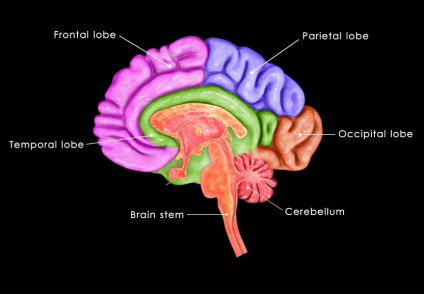In the summer of 2000 I was diagnosed with a brain tumor.
I had developed double vision because a meningioma, a benign tumor, was pressing on cranial nerve VI, the one that controlled the movement of my left eye. The tumor was small, but it was located in an awkward place near the center of my brain. That meant that surgery to remove the tumor would likely damage the nerves that controlled sensation in my face and my hearing on the left side.
Surgery was, until shortly before that point, the only option for treatment. However, as a physician I had access to those who knew about the latest treatment options. A dear friend, a neuro-radiologist, told me about stereo-tactic (“gamma knife”) radiosurgery, which is not surgery at all, but a one day course of radiation to kill the tumor.
I consulted a neurosurgeon, widely reputed to be one of the best in the US, to find out what he recommended. He recommended surgery.
I asked him:
Which treatment had the highest cure rate?
He told me that surgery had a cure rate of 85% and the gamma knife had a cure rate of 95%.
Which treatment had the highest complication rate?
He told me that surgery would likely lead to loss of sensation on the left side of my face and deafness in my left ear. The gamma knife had no complications beyond local irritation.
If the gamma knife treatment failed, would that make subsequent surgery more risky?
He told me that it would have no effect.
So I asked him why he was recommending surgery if the gamma knife had a higher cure rate and a lower complication rate. He replied honestly:
“I don’t do the gamma knife.”
In other words, he was recommending what was best for him, not what was best for me. It could have been worse; had he believed that he couldn’t successfully perform the surgery or offer the gamma knife, he could have told me not to worry, my brain tumor didn’t need any treatment at all.
And that could be the unethical motto at the heart of contemporary midwifery theory: If she can’t do it, you don’t need it.
Consider the midwifery stories that have appeared in the news within the past few weeks.
1. An update from the inquest into the death of Australian homebirth advocate Caroline Lovell.
A Melbourne mother who died after the home birth of her daughter pleaded with her husband to call an ambulance because she felt she was going to die, the Victorian Coroners Court has heard…
Paramedic Marie Daley noted that Nick Lovell had told her at the scene that his wife had grabbed him by his shirt, looked him in the eye and pleaded with him for help,
“‘Nick I’m telling you, you need to call an ambulance, I’m going to die’…
But midwife Gaye Demanuele did not call an ambulance.
The inquest had previously heard that the now unregistered midwife Gaye Demanuele believed Ms Lovell was panicking and did not identify any physical symptoms, which she expressed to Mr Lovell when his wife started hyperventilating…
… [T]he obstetrician at the Austin on the night, Dr Claire Petterson, estimat[ed] Ms Lovell lost three litres of blood. The midwives estimated Ms Lovell had lost 400 millilitres in the birthing pool.
The midwife did know how to manage postpartum hemorrhage, so she insisted that the patient was not having a postpartum hemorrhage.
2. The failure of British midwives to consult a pediatrician for Joshua Titcombe as detailed in the Morecambe Bay Report. Joshua was seriously ill with an infection, but midwives insisted that he was fine. They couldn’t care for a neonatal infection so they insisted that there was no infection.
3. The New Zealand midwife who missed the homebirth (how often have we heard that story?) and then when the patient complained about severe perineal pain, the midwife insisted that the tear would heal itself if the patient was “ladylike” just kept her legs together The midwife didn’t know how to suture a tear so she insisted that the tear did not need to be sutured.
4. Oregon homebirth midwife Joanna Jech who ignored a mother’s pre-eclampsia, and when the patient went into labor and the fetal heart rate became undetectable, waited 19 minutes before calling 911. The baby was stillborn at the hospital. The midwife would have been required to transfer care of the patient to a physician if she diagnosed pre-eclampsia so she simply insisted that the patient didn’t have pre-eclampsia. She couldn’t treat fetal distress in labor so ignored it for 19 minutes before calling for emergency assistance.
These incidents, though they involved different midwives at different times and in different countries share a glaring ethical lapse: if the midwife couldn’t provide the appropriate care, she insisted that the patient didn’t need it.
As the story of my brain tumor indicates, this ethical lapse is not restricted to midwives, but in the case of midwives has seemingly become part of the professional ethos. The midwifery commitment to “normal birth” is a commitment to what benefits THEM, not what is safest for their patients. Their efforts to demonize obstetrical interventions benefits THEM, not mothers or babies. Their portrayal of the C-section rate as a medical crisis benefits THEM, not mothers or babies.
No doubt many of the midwives believe that “normal birth” is better, safer and healthier despite the fact that there is no scientific evidence to support that claim. It’s a classic example of “where you stand depends on where you sit.” Midwives need to confront their unethical behavior by acknowledging that their commitment to “normal birth” is a commitment to personal benefit, a factor that has no place in the ethical provision of health care.


